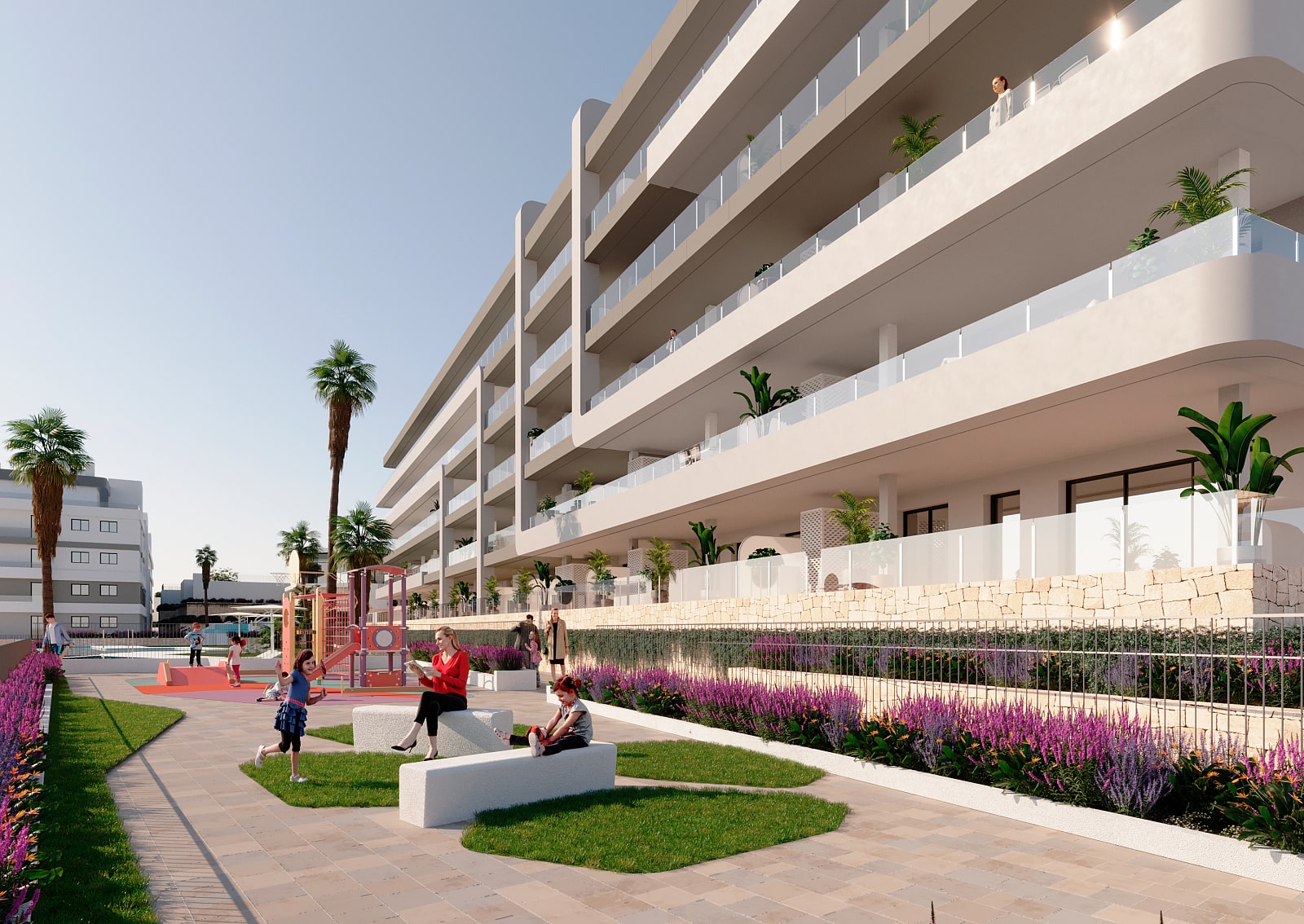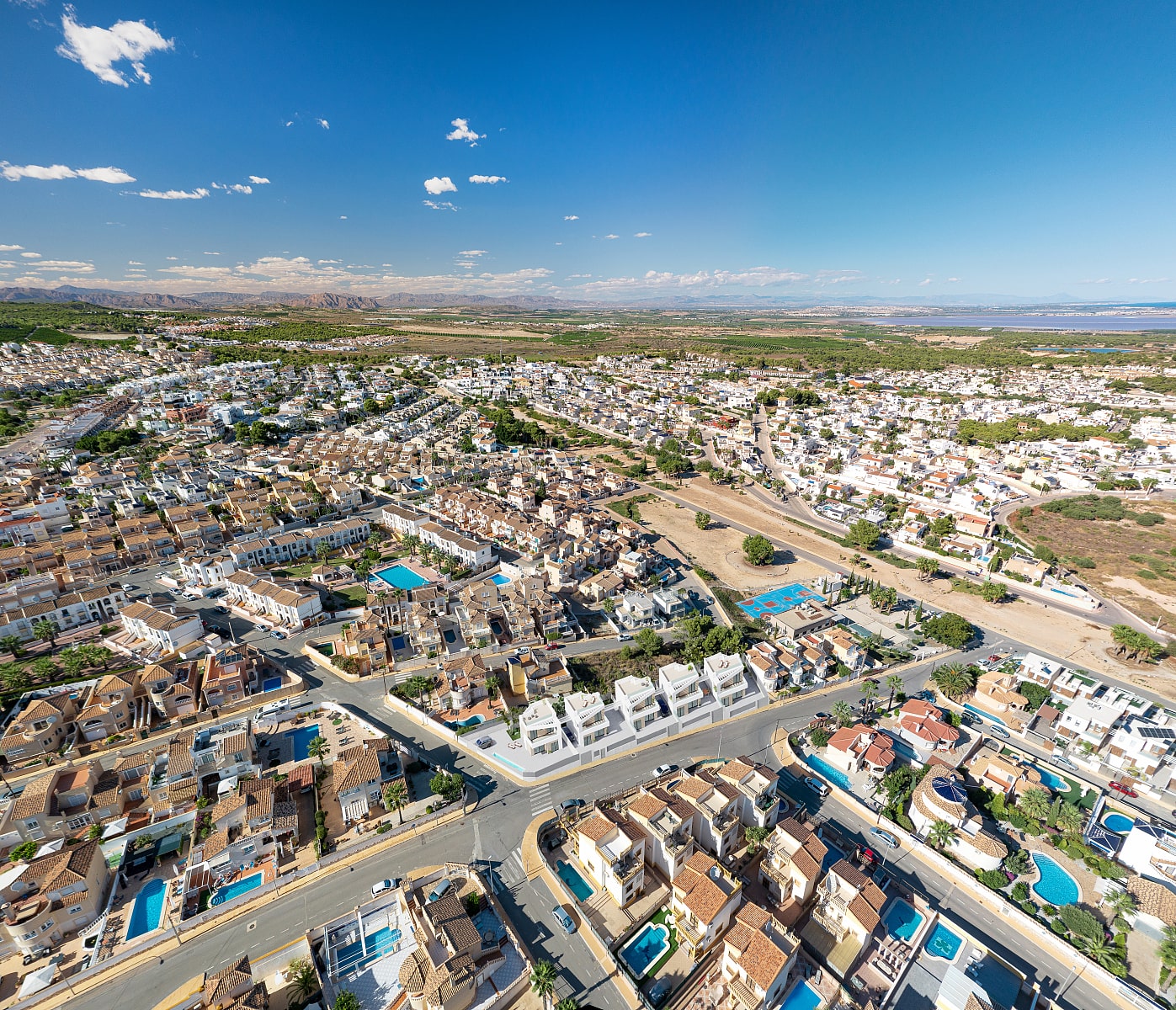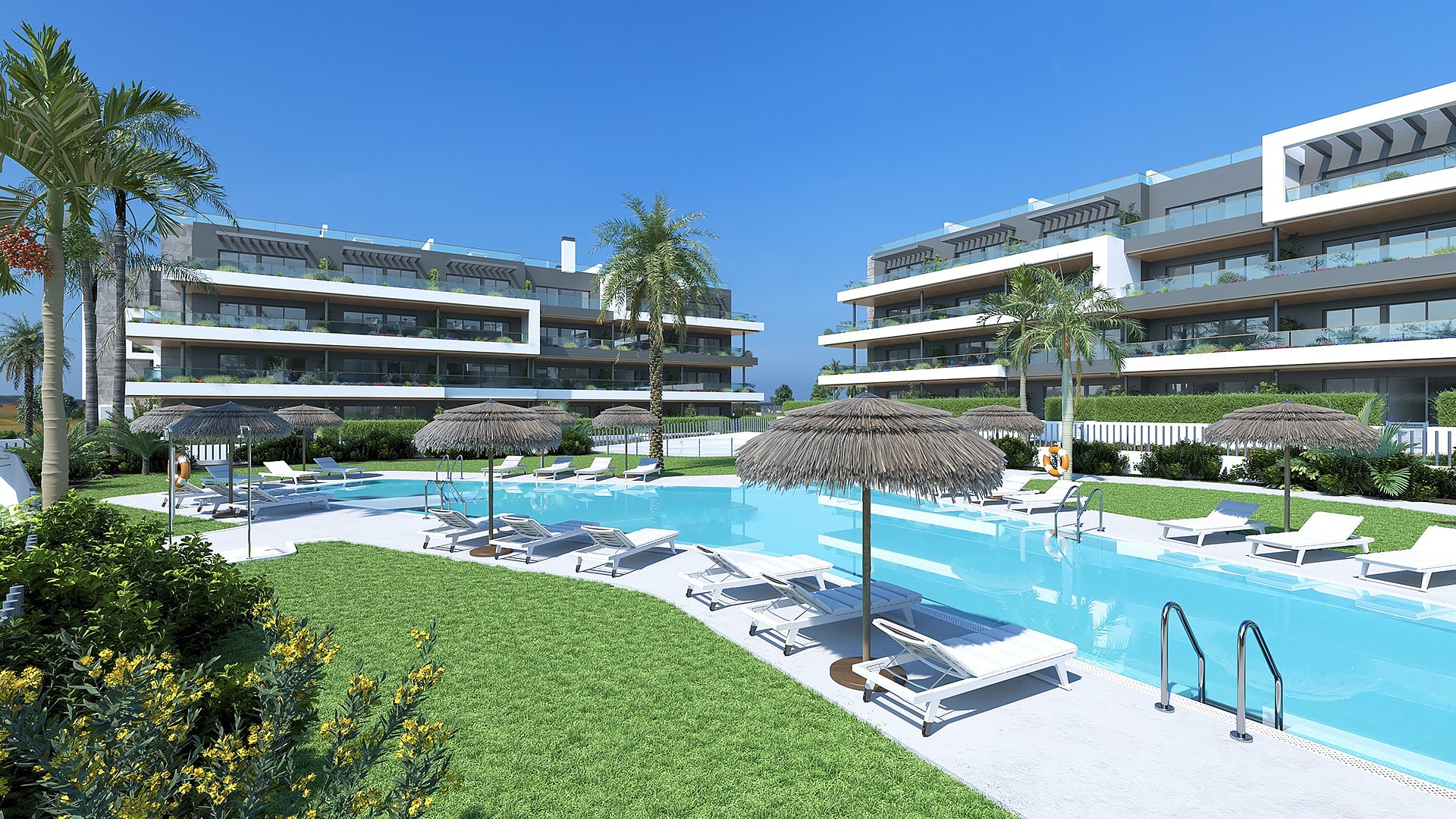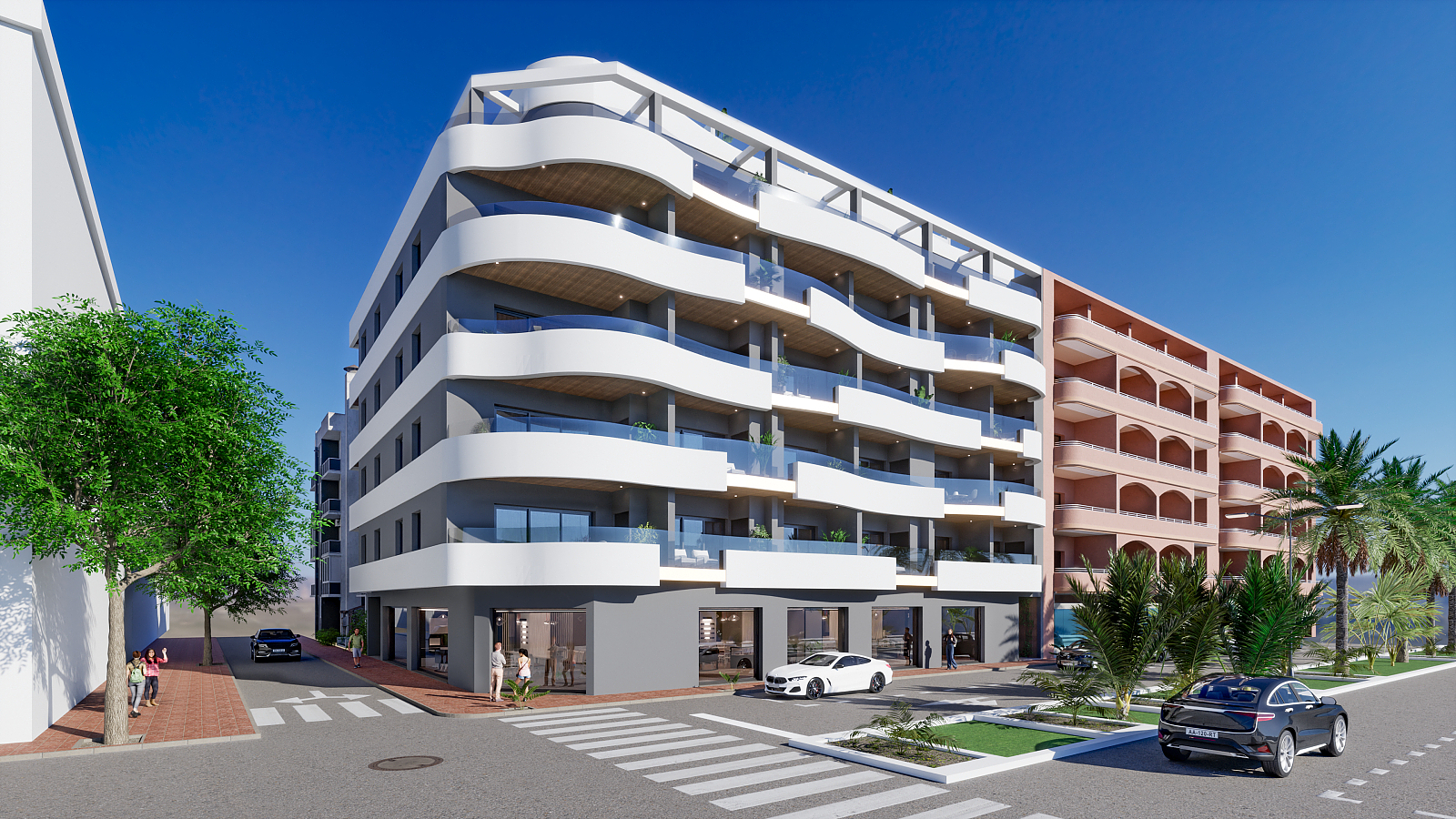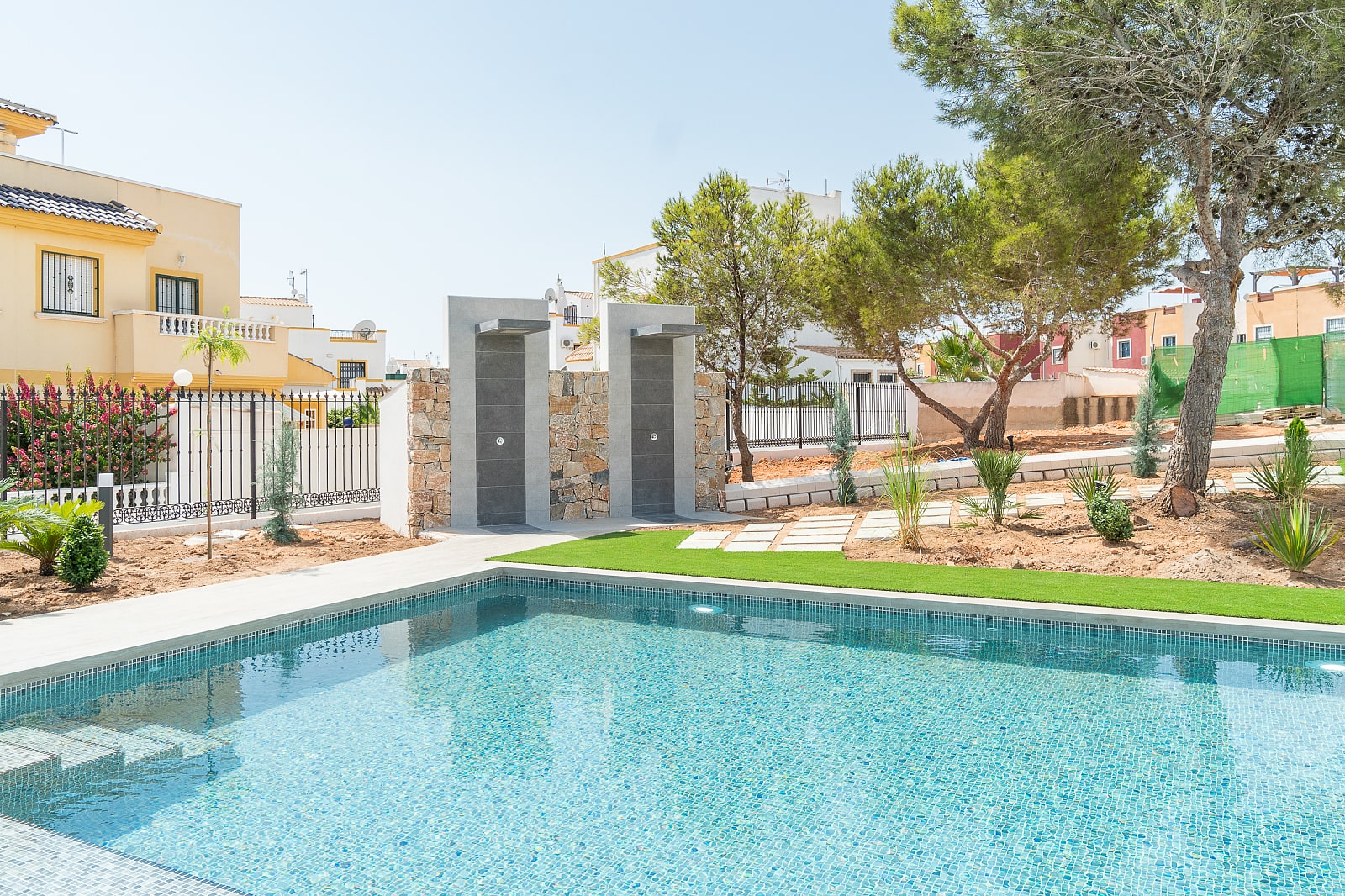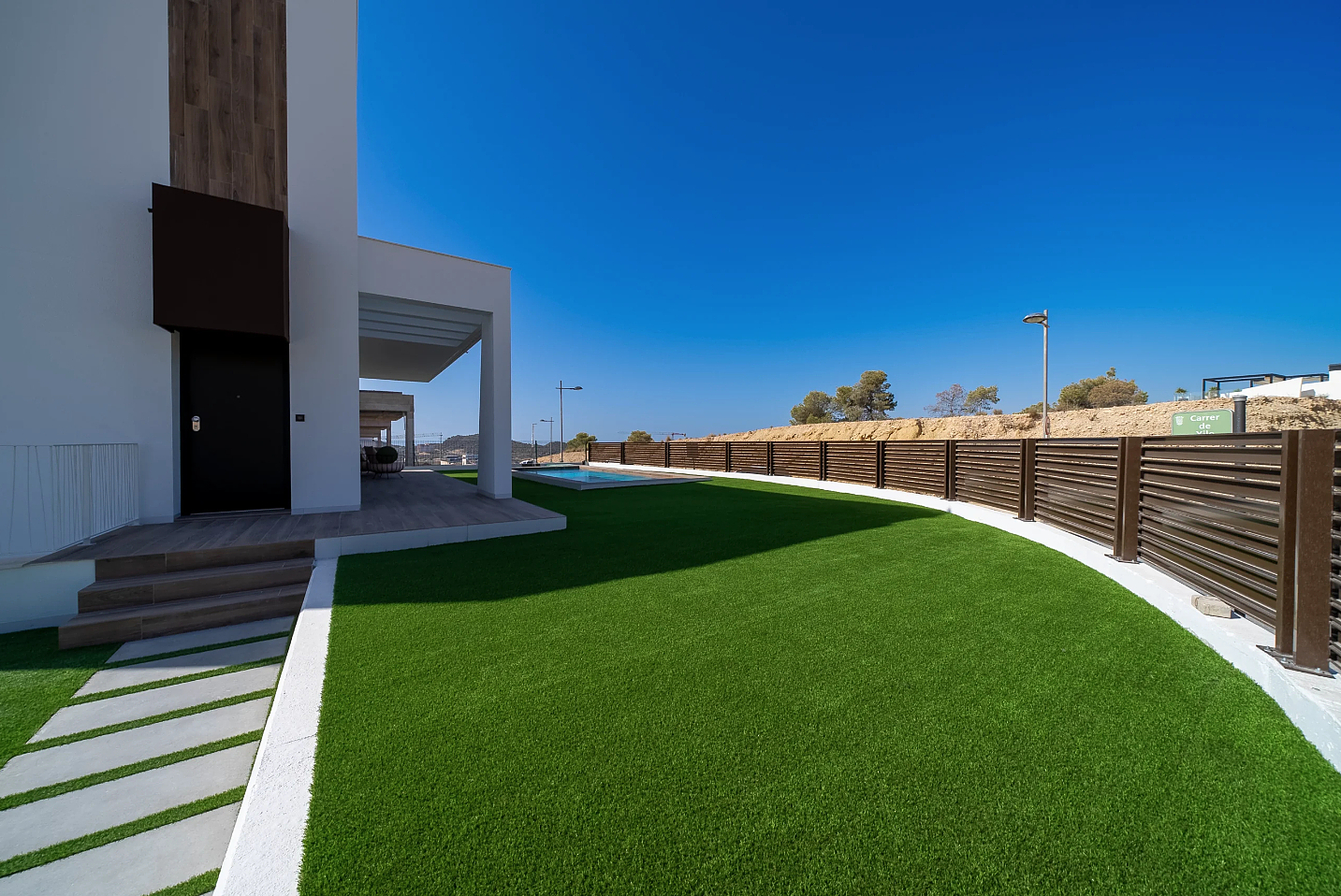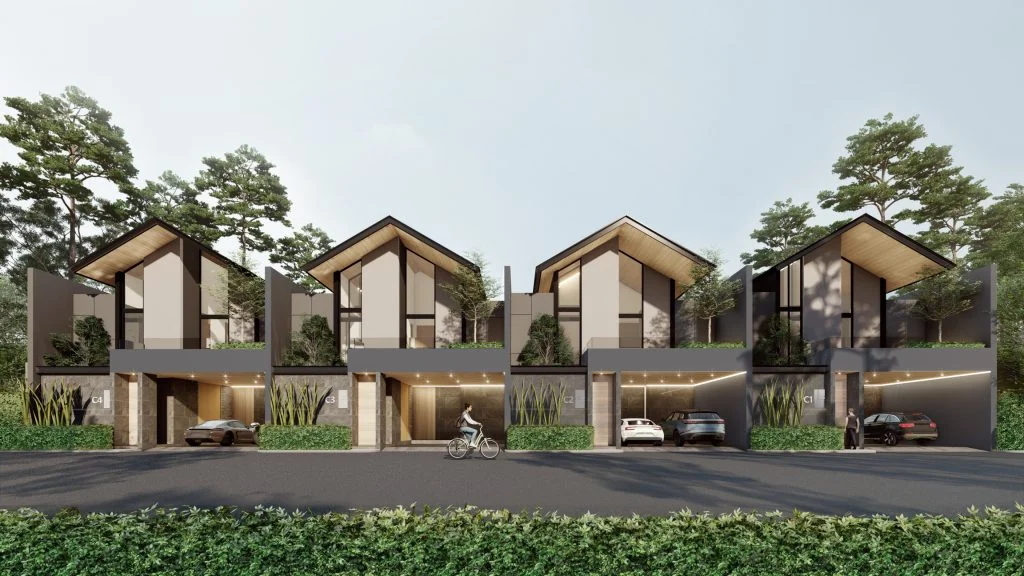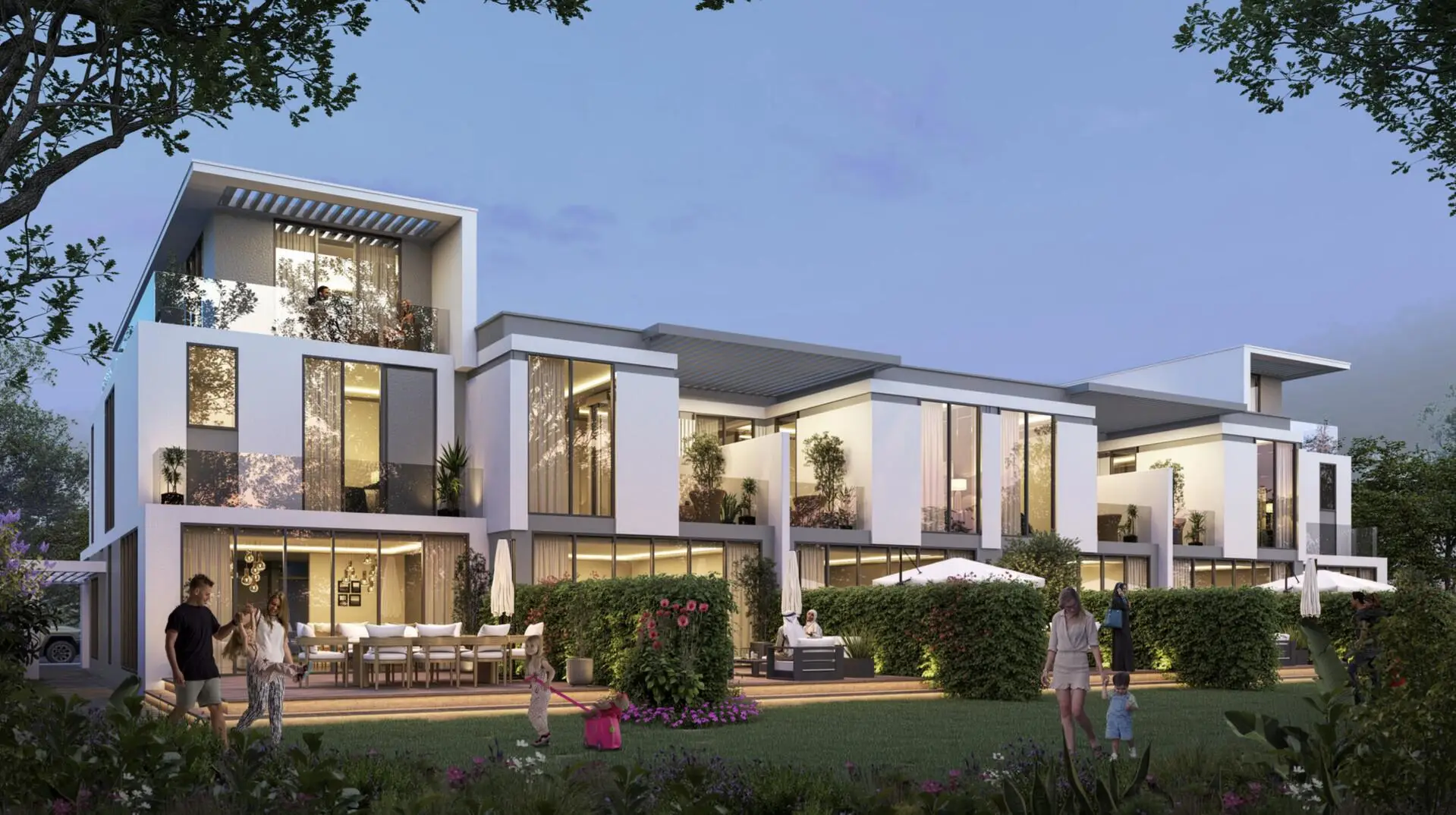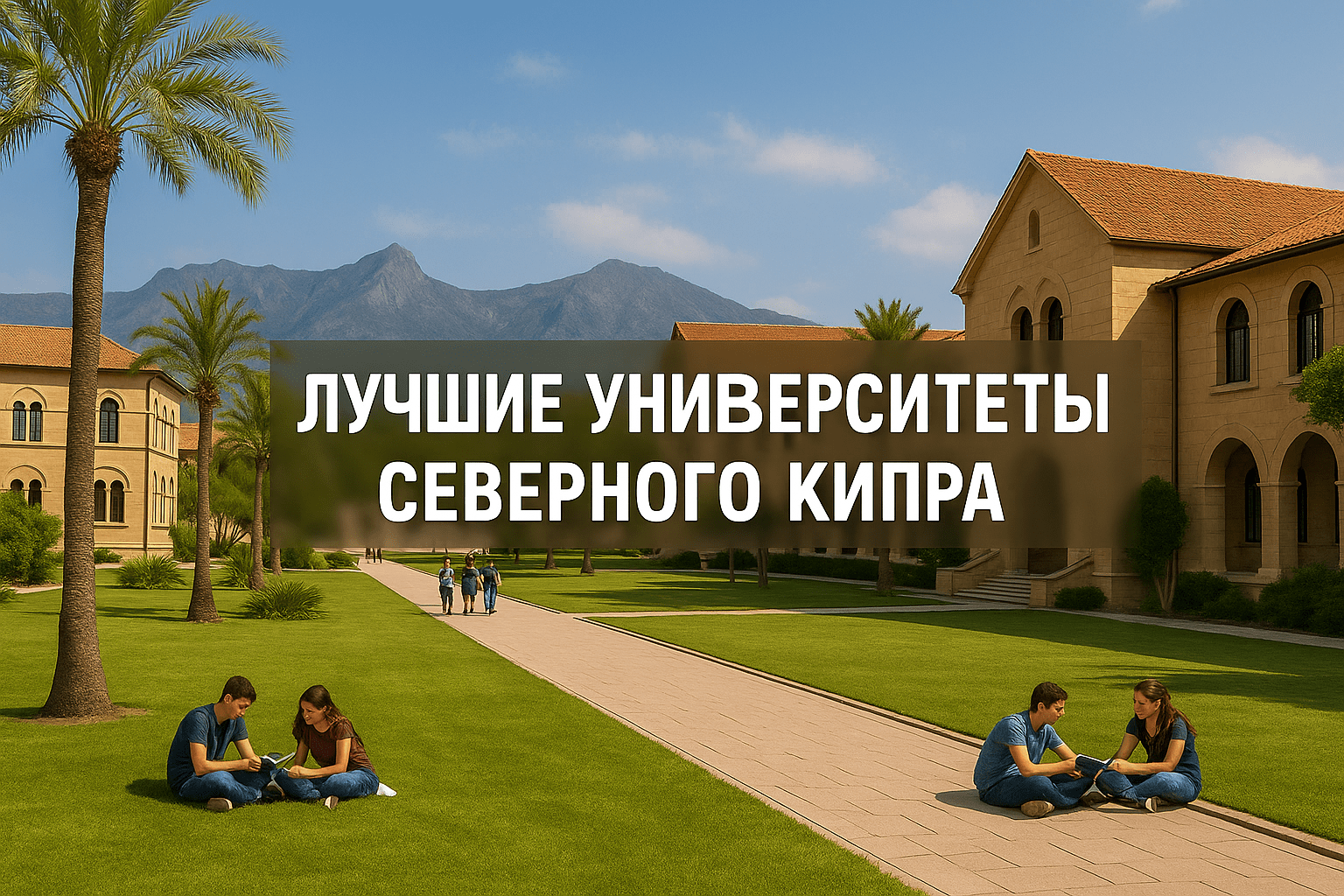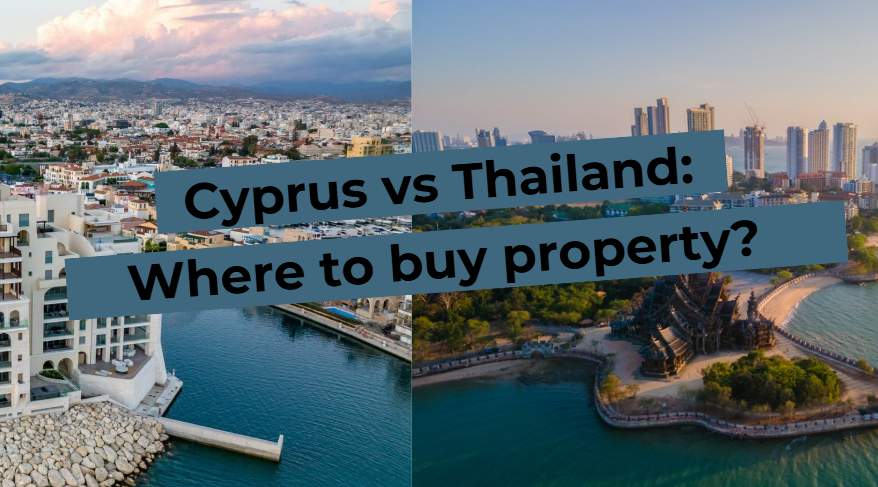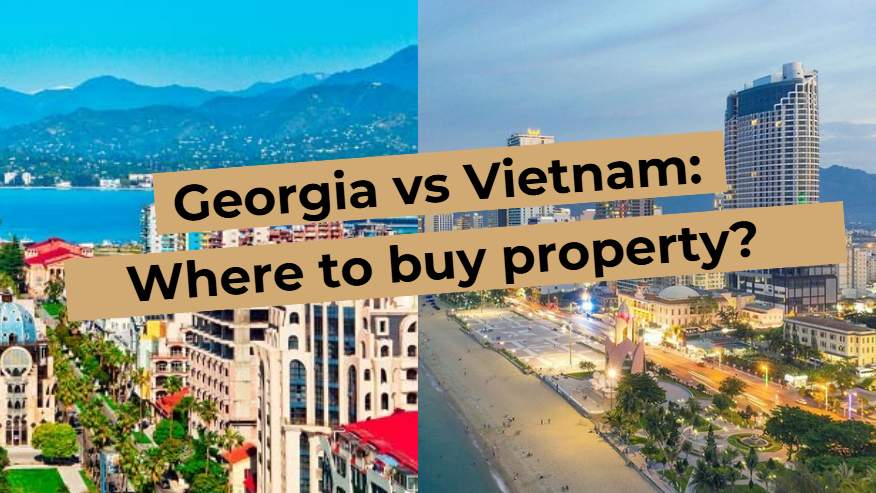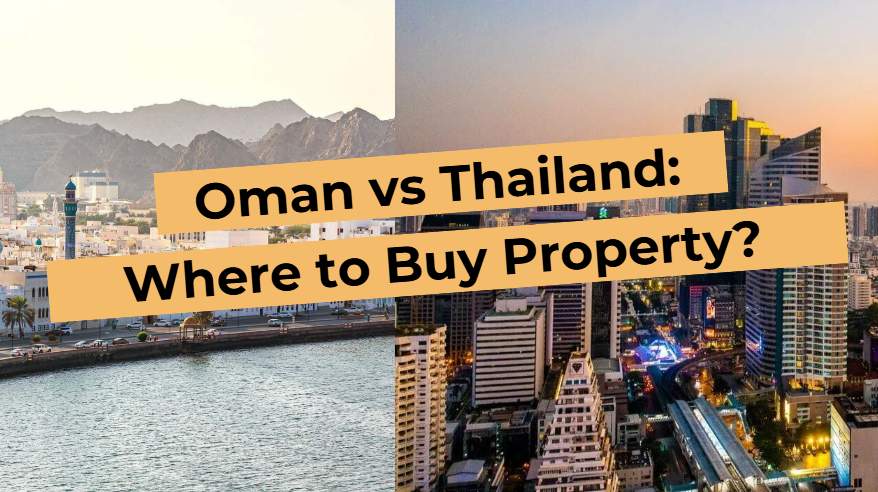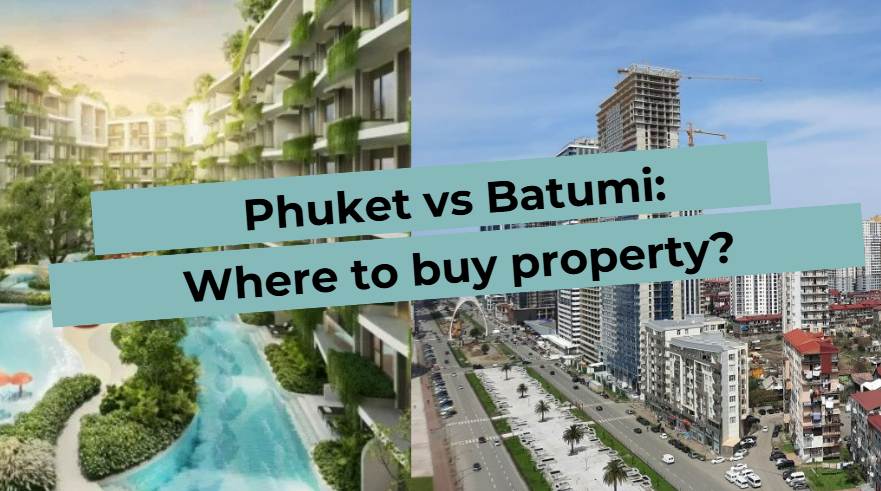
Alicante: The Complete Guide to Living, Sightseeing and Real Estate Investing

Alicante, located on the Mediterranean coast, is one of Spain's most popular and charming cities. This bright and sunny city is renowned for its mild climate, rich history and cultural heritage, and a variety of entertainment and recreational opportunities. Due to its strategic position on the Costa Blanca, Alicante attracts both tourists and expats who want to enjoy the quality of life that the region offers.
Alicante on the map
Alicante is located in the southeast of Spain, in the autonomous community of Valencia. This coastal city is located on the Costa Blanca, which is known for its white sandy beaches and crystal clear waters of the Mediterranean Sea. Alicante occupies a strategic position, being only a few hours away from major cities such as Valencia and MadridIt is also in close proximity to other popular resort areas such as Benidorm and Torrevieja.
Basic Geographic Characteristics:
- Latitude and longitude: Alicante is located at latitude 38.3452°N and longitude 0.4815°W.
- Costa Blanca: The coastline is about 200 kilometers long and is famous for its clean beaches, many of which have been awarded the Blue Flag for their quality and environmental friendliness.
- Mountains and hills: The town is surrounded by picturesque mountains and hills that create a unique landscape and offer opportunities for outdoor activities such as hiking and mountaineering.
Alicante Airport
Alicante-Elche International Airport (IATA code: ALC) is one of the busiest airports in Spain, serving millions of passengers each year. The airport is located just 9 kilometers southwest of the center of Alicante, making it very convenient for travelers.
Ways to get to the city:
- Cab: A cab ride from the airport to the center of Alicante takes about 15-20 minutes and costs about 20-25 euros. Cabs can easily be found in the parking lot near the arrivals terminal.
- Bus: Regular bus services connect the airport with the city center. Travel time is about 30 minutes and the ticket price is about 4 euros. Buses run every 20 minutes and stop near the city's main transportation hubs, such as the bus station and train station.
- Rental Car: Car rental services from leading companies such as Hertz, Avis and Europcar are available at the airport. This is a great option for those who plan to travel around the region and explore the surrounding area. Rental costs vary depending on the company and type of car, but on average range from €20 to €50 per day.
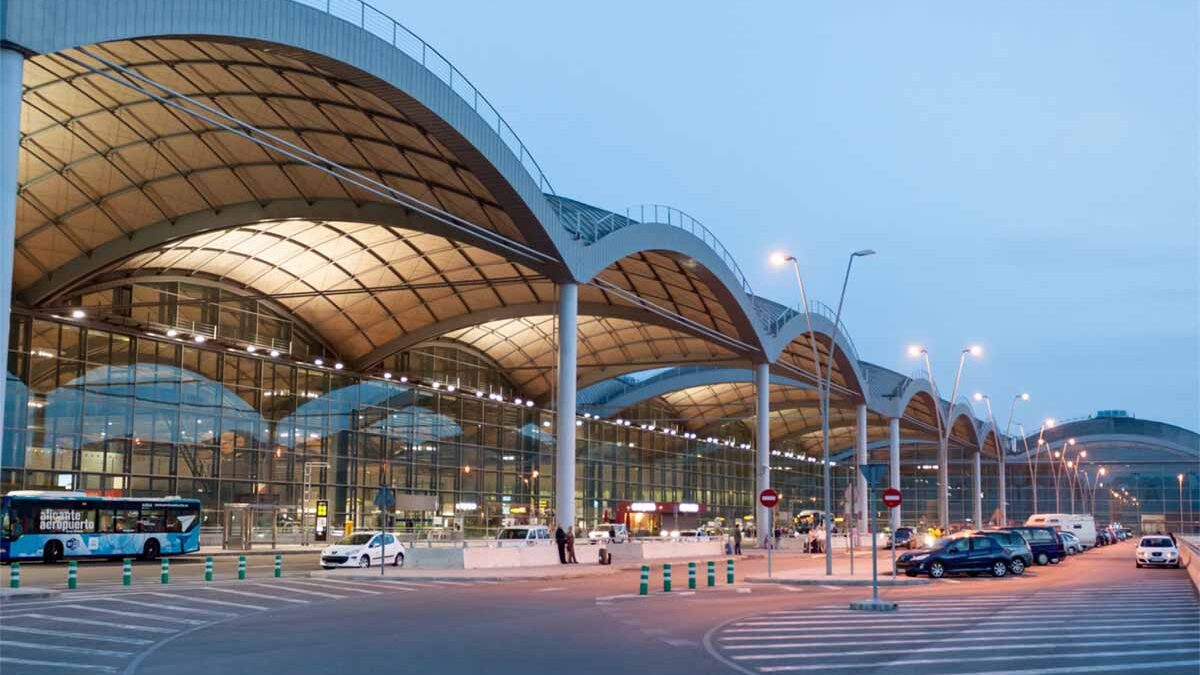
Airport Infrastructure:
- Services and Amenities: The airport has restaurants, cafes, stores including duty-free, and relaxation areas. There is free Wi-Fi, ATMs and currency exchange.
- Parking: There are several parking areas at the airport, including short-term and long-term parking. Parking prices vary, but short-term parking usually costs around €2 for the first hour.
- Transportation Connections: In addition to buses and cabs, the airport is also served by many private transfer companies offering individual and group rides.
Alicante-Elche is an important transportation hub providing easy access to the Costa Blanca region and promoting tourism and business in the area.
Alicante neighborhoods
Alicante is a diverse city that offers many different neighborhoods, each with its own unique characteristics and appeal. Here are some of the city's main neighborhoods to consider:
1. City Center (Centro)
The center of Alicante is the heart of the city, where the main administrative and commercial institutions are concentrated. Many stores, restaurants and cafes can be found here, as well as historical landmarks such as the Cathedral of St. Nicholas and Gabriel Miro Square.
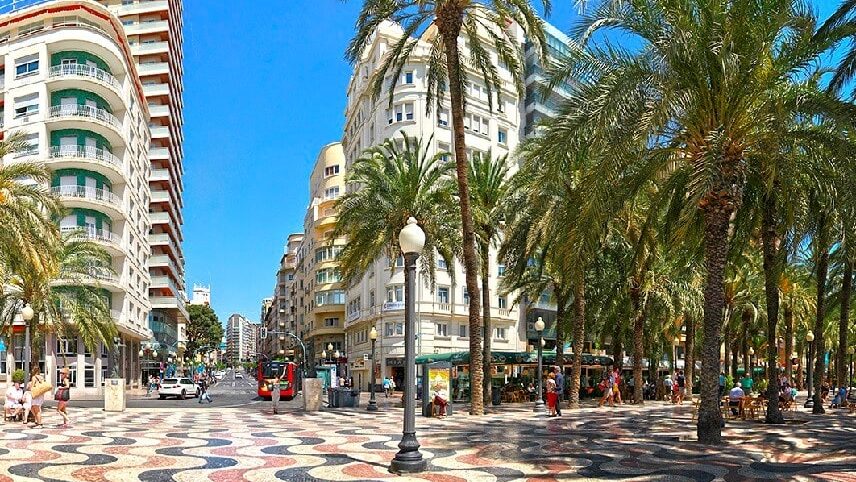
- Attractions: Santa Barbara Castle, Esplanada de España, Alicante Archaeological Museum (MARQ). These places offer the historical and cultural heritage of the city as well as excellent views and walking opportunities.
- Housing: Variety from old apartments to modern apartments. In the center there are often buildings with historic architecture that retain the traditional style but have been updated for modern comfort.
- Transport: Excellent transportation links including bus and streetcar lines that provide easy access to other parts of the city.
2. San Juan
San Juan is known for its long sandy beaches and is a popular area for vacationing and living. The area is ideal for those who want to enjoy beach life and coastal activities.
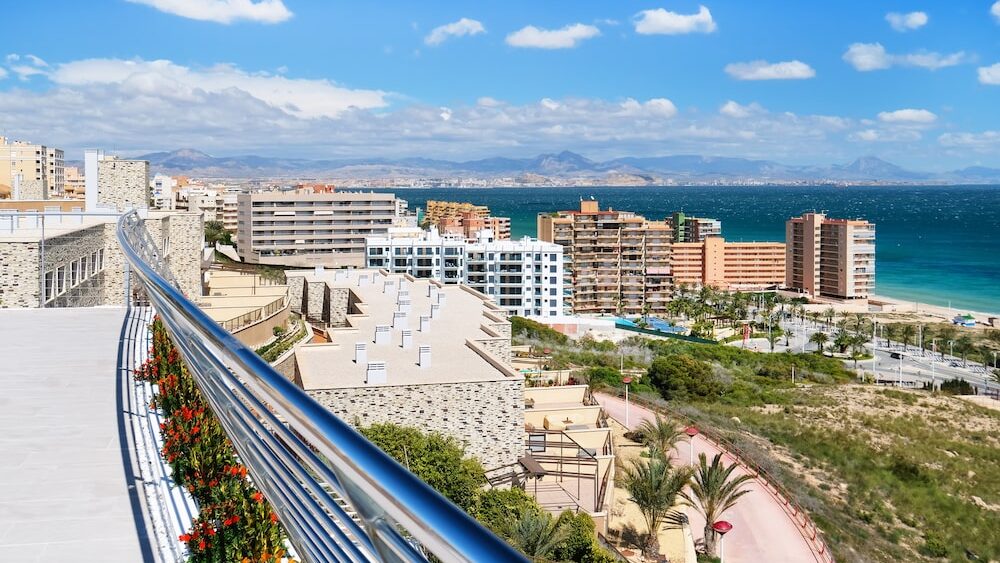
- Beach: San Juan Beach is one of the most famous and popular beaches in the region. Beach clubs, cafes and restaurants along the promenade offer everything you need for a relaxing vacation.
- Housing: Many modern apartments and villas with sea views. Here you can find both new residential complexes and luxury villas.
- Infrastructure: Restaurants, bars, stores and sports clubs. San Juan is also known for its excellent schools and medical facilities.
3. Albufereta.
Albufereta is a cozy coastal area located north of the center of Alicante. There are beautiful beaches and many residential complexes with excellent sea views.
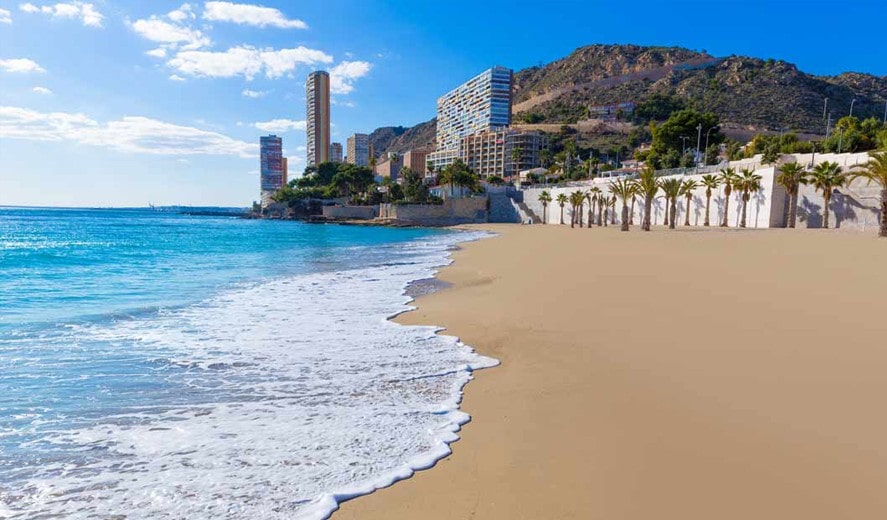
- Beaches: Clean and well-maintained beaches with golden sand. Albufereta is less crowded with tourists, making it a quieter place to relax.
- Housing: Lots of apartments and condominiums. Many offer sea views and modern amenities.
- Transport: Good connections to the city center and other districts. Regular bus and streetcar routes provide easy access to major attractions.
4. Cabo de las Huertas (Cabo de las Huertas)
This prestigious neighborhood is known for its luxury villas and quiet coves. Cabo de las Huertas attracts those seeking privacy and comfort in an upscale residential area.
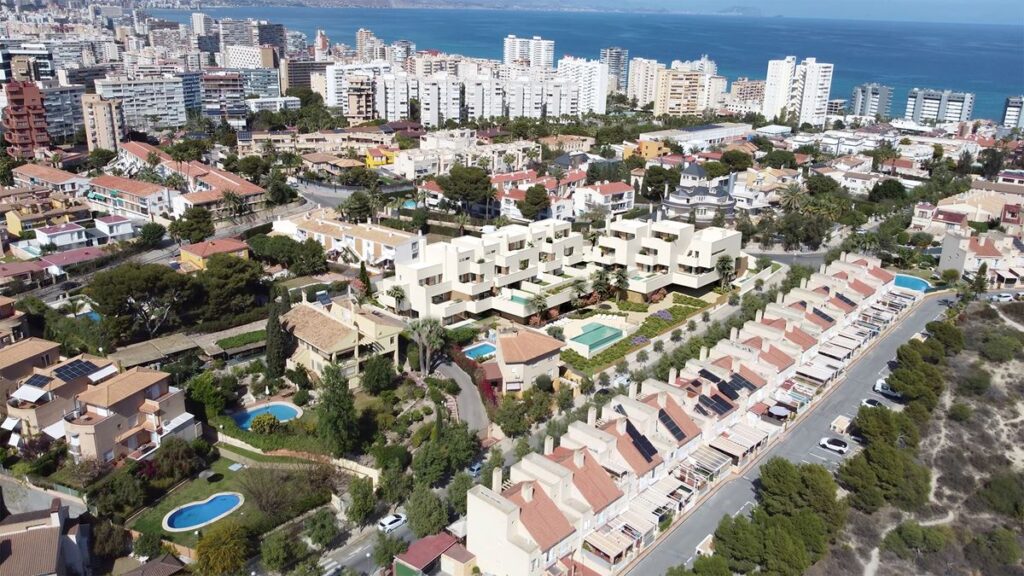
- Attractions: Natural parks and hiking trails. The area is renowned for its natural beauty and walking opportunities.
- Housing: High-end villas and private residences. Cabo de las Huertas offers some of the most exclusive residential properties in Alicante.
- Infrastructure: High level of security, private schools and clubs. The neighborhood is ideal for families with children and those who value privacy.
5. Benalúa.
Benalua is a historic neighborhood located south of the center of Alicante. Here you can find many traditional houses and cozy squares.
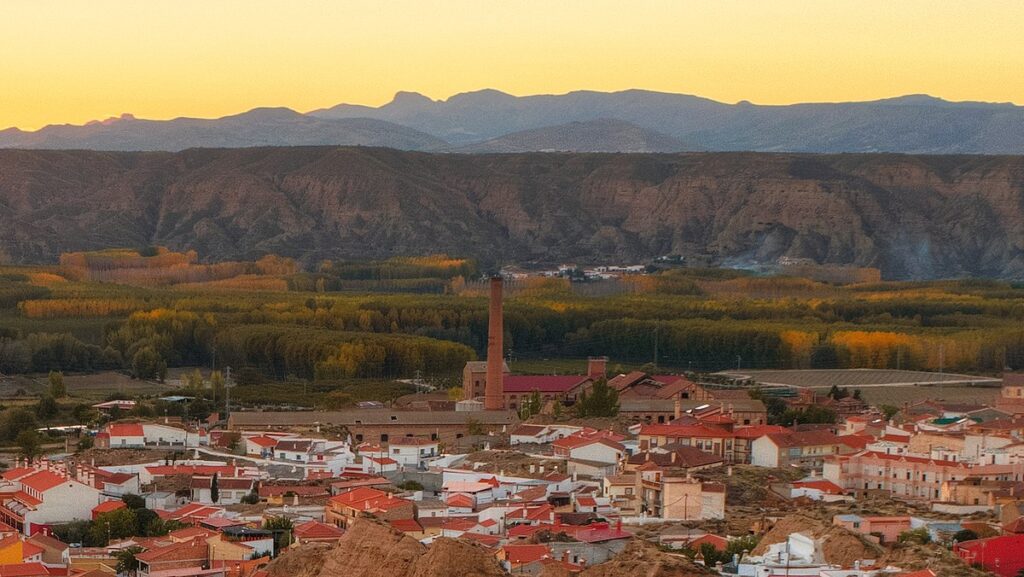
- Architecture: Historic buildings and charming streets. Benalua retains a traditional Spanish style that gives the neighborhood a special charm.
- Housing: Comfortable apartments and houses. The area is attractive for those looking for affordable housing in the city center.
- Infrastructure: Local markets, stores and cafes. Benalua is famous for its small family-run restaurants and bars where you can sample the local cuisine.
6. Villafranqueza.
Villajoyosa is a quiet residential area on the outskirts of Alicante, ideal for family life. There are plenty of green areas and parks.
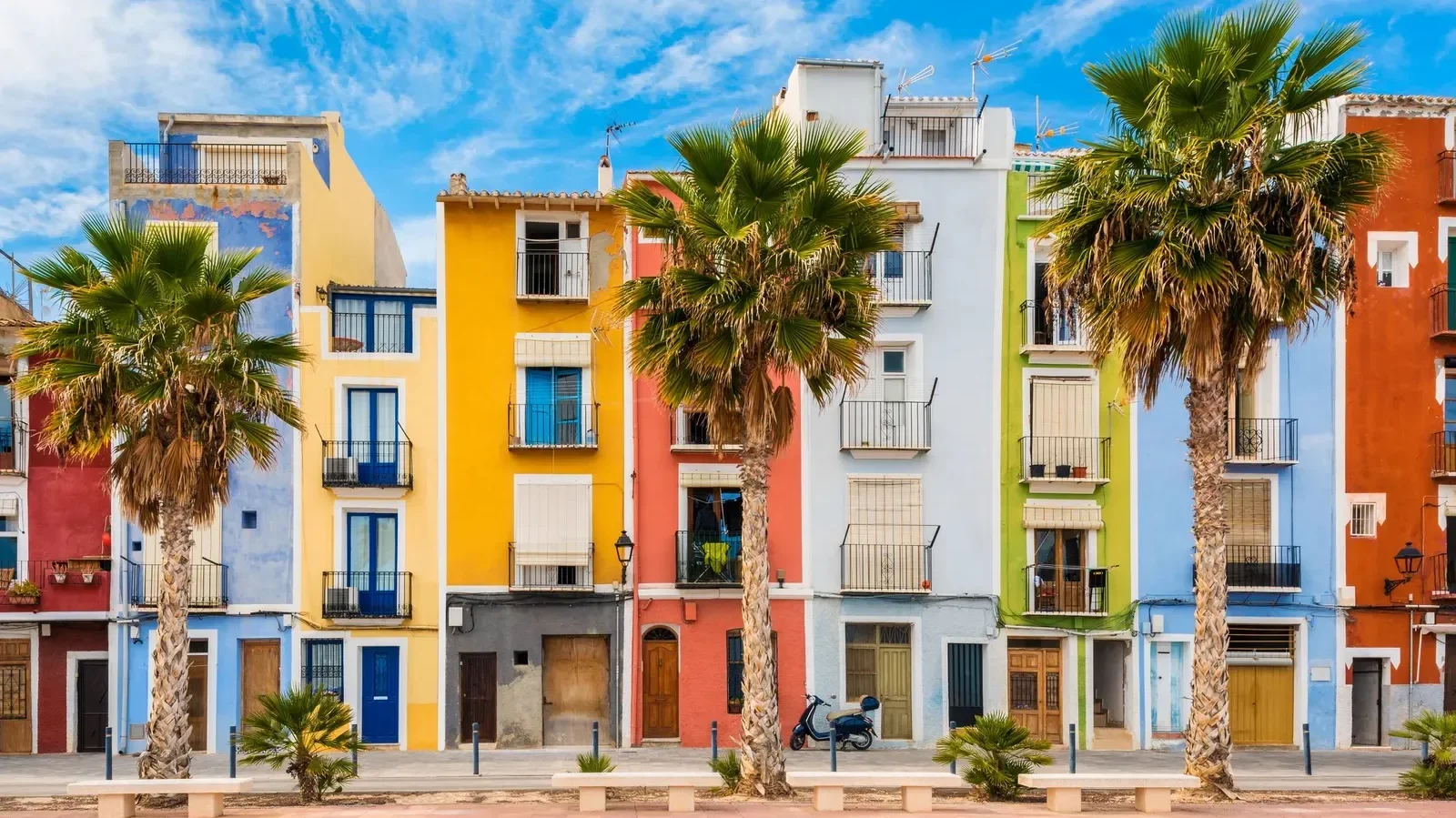
- Parks and greens: Parks and playgrounds for outdoor activities. Villajoyosa offers many opportunities for walking and outdoor recreation.
- Housing: Spacious homes and townhomes. Here you can find more affordable housing options with plenty of space.
- Infrastructure: Schools, supermarkets and sports complexes. The neighborhood is well equipped with everything necessary for a comfortable life, including modern medical facilities and educational institutions.
Each of these neighborhoods in Alicante has its own unique characteristics and has something special to offer residents and visitors. Whether you are looking for a lively city pace or a quiet place to live by the sea, you can always find the right neighborhood in Alicante to suit your needs and preferences.
Weather in Alicante
Alicante is renowned for its mild and pleasant climate, making it an ideal year-round vacation and living destination. The city's Mediterranean climate is characterized by hot, dry summers and mild, humid winters. The average annual temperature is around 18°C, with temperatures often rising to 30°C and above in summer and rarely dropping below 10°C in winter.
Seasonal changes
| Month | Average temperature (°C) | Water temperature (°C) | Precipitation (mm) | What to do |
|---|---|---|---|---|
| January | 12 | 14 | 25 | Visiting museums, strolling along the waterfront, wine tasting at local wineries |
| February | 13 | 14 | 24 | Participation in winter festivals, hiking in the mountains, sightseeing |
| March | 15 | 15 | 22 | Nature walks, visits to flowering gardens, bicycle tours |
| April | 17 | 16 | 26 | Picnics in parks, boat rides, visits to nature reserves |
| May | 20 | 18 | 21 | Beach vacations, water sports, festivals and fairs |
| June | 24 | 21 | 10 | Swimming in the sea, sunbathing, evening walks in the city |
| July | 27 | 24 | 3 | Beach recreation, evening outdoor concerts, water sports |
| August | 27 | 26 | 5 | Beach parties, diving, yacht trips |
| September | 24 | 25 | 20 | Beach vacation, sightseeing, participation in cultural events |
| October | 20 | 23 | 45 | Hiking in the mountains, seeing historical monuments, visiting winery tours |
| November | 16 | 20 | 32 | Walks in the old town, visits to museums, gastronomic tours |
| December | 13 | 16 | 26 | Christmas fairs, warm evening walks, theater visits |
- Summer (June-September): Hot and sunny with minimal rainfall. Ideal time for a beach vacation.
- Fall (October-November): Warm and pleasant weather, but with an increased chance of rain. Excellent time for cultural events and gastronomic tours.
- Winter (December-February): Mild winter with occasional rain. Ideal for those who avoid cold winters and want to enjoy the cozy atmosphere of the city.
- Spring (March-May): Warm and blooming spring, a great time for walking and outdoor activities.
This table will help you plan your stay in Alicante according to the season and your preferences. Regardless of the season, Alicante is always ready to offer a variety of entertainment and activities.
History of Alicante
Alicante has a rich and varied history dating back thousands of years. The first settlements in the area date back to prehistoric times. The city was founded by the ancient Iberians and later conquered by the Romans, who called it "Lucentum". During the Middle Ages, Alicante was ruled by the Moors, who left a significant cultural and architectural heritage. In 1247, the city was conquered by the Christians and became part of the Kingdom of Valencia.
Prehistory:
- The first evidence of human activity in the Alicante area dates back to the Paleolithic era, as confirmed by findings in the Tabarca and Palmiente caves.
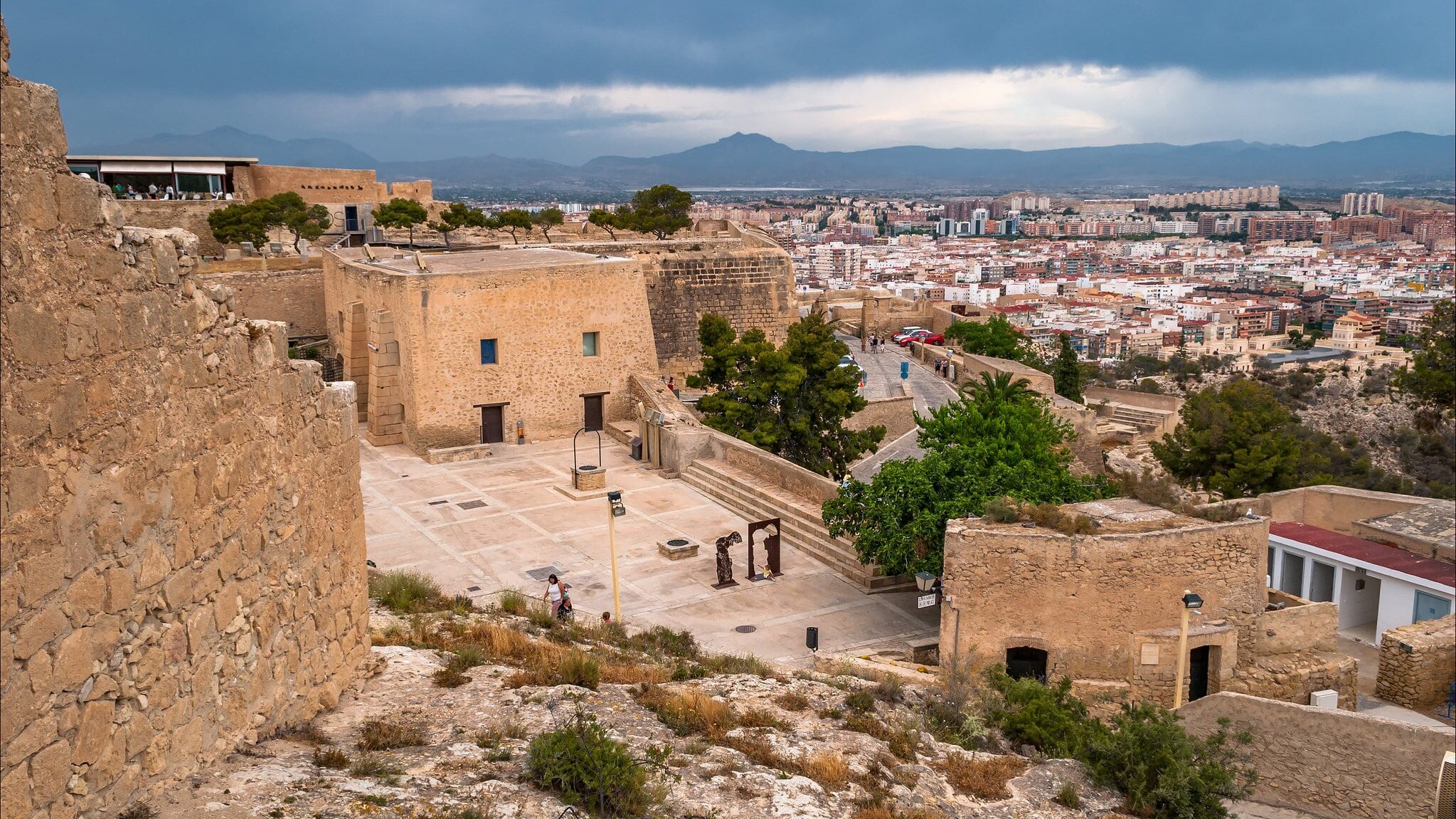
Iberian and Roman era:
- An Iberian settlement known as "Akra Leuke" flourished here from the 4th century BC to the 2nd century AD.
- During Roman rule, the town was called "Lucentum". The ruins of the Roman city can still be seen at the Tossal de Manises archaeological site.
Moorish period:
- From 718 to 1247, Alicante was under the rule of the Moors. They named the city "Al Acant" and developed it as an important commercial and cultural center.
- Many architectural monuments such as the Santa Barbara Fortress and various mosques were built during this time.
Reconquista and the Middle Ages:
- In 1247, the city was captured by King Alfonso X of Castile and became part of the Kingdom of Valencia.
- Alicante later became an important port, especially during the reign of the Crown of Aragon.
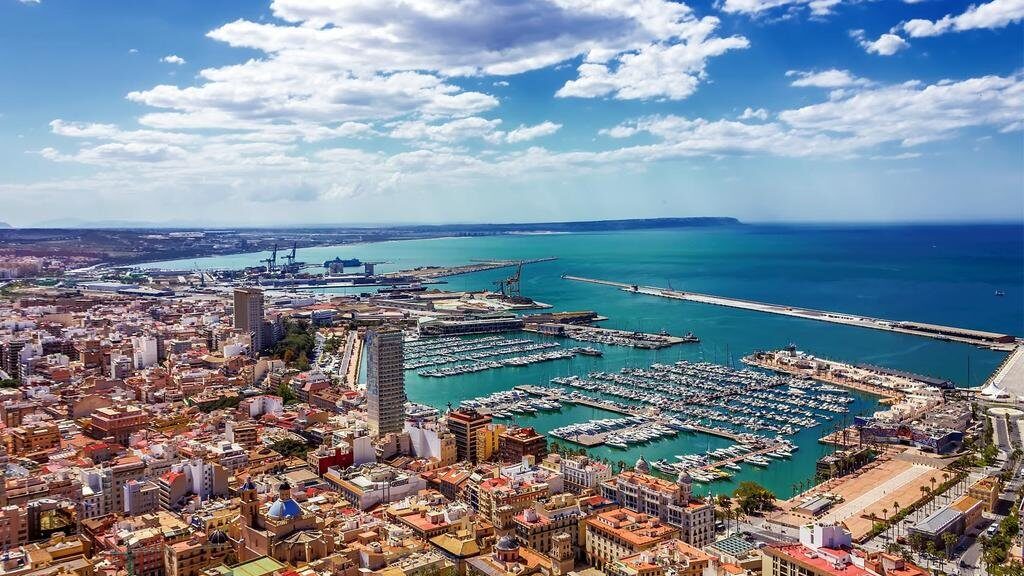
Renaissance and Modern Times:
- In the XVI century Alicante received the status of a city and began to actively develop as a trade center.
- In the 18th and 19th centuries, the city experienced an economic boom due to trade with America and other countries.
Modern History:
- In the 20th century, Alicante continued to develop and became a popular tourist destination. New neighborhoods were built, infrastructure was improved and the tourism industry was developed.
- Today, Alicante is a modern city with a rich cultural heritage that continues to attract tourists from all over the world.
Alicante is proud of its cultural heritage, which is reflected in its many museums, archaeological sites and architectural masterpieces. The city combines ancient history with modern amenities, making it an attractive place to live and visit.
Alicante sights
Alicante is rich in historical and cultural attractions that attract tourists from all over the world. Here are some of the main places to visit:
Santa Barbara Castle
This impressive castle, perched atop Mount Benacantil, is one of the largest medieval castles in Europe. It offers spectacular views of the city and the coast. Visiting the castle is free, but you can pay around 4-5 USD for an audio guide to better understand the history of the place.
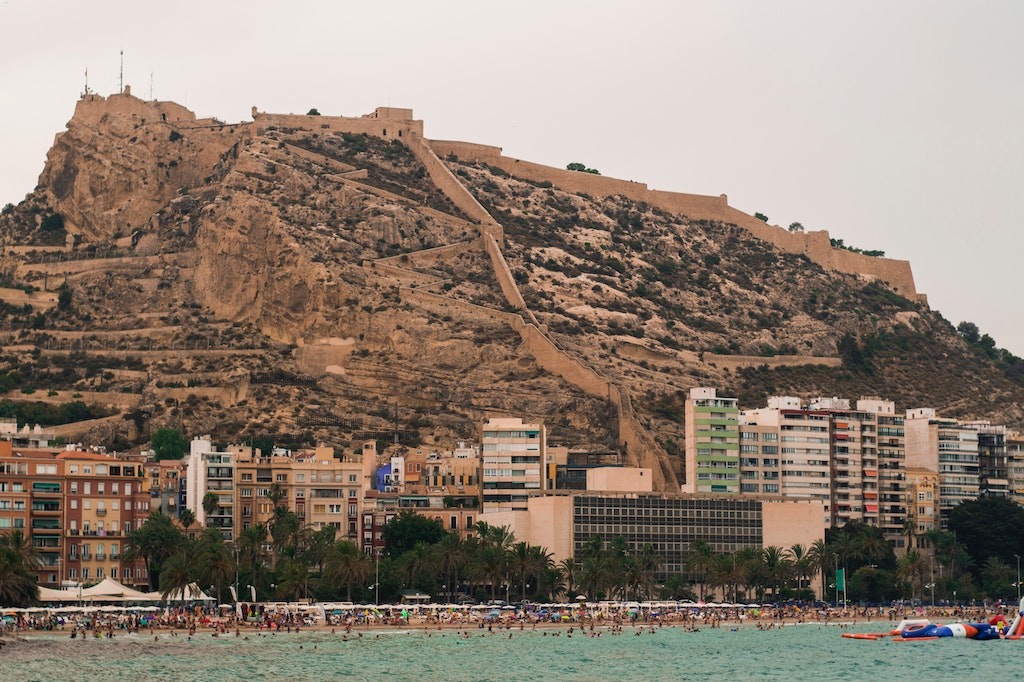
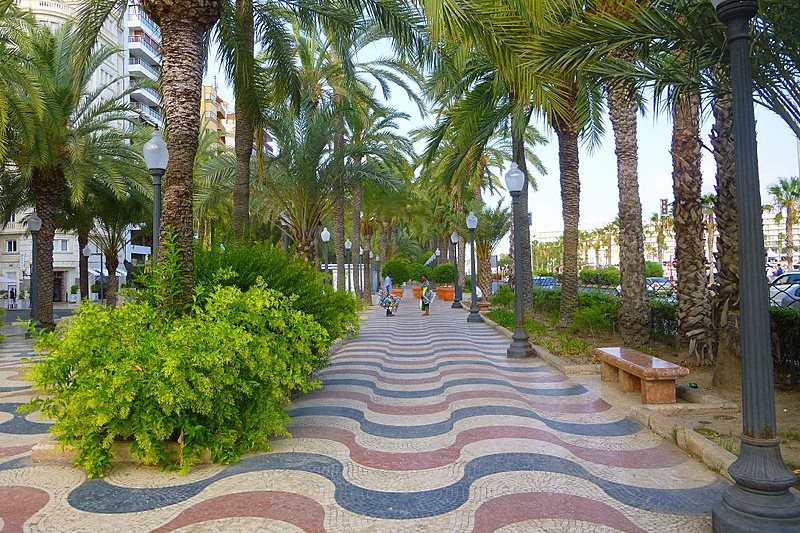
Esplanada de España
A picturesque promenade with palm trees and paved with marble, ideal for evening strolls. It is one of the most famous places in Alicante and it is completely free to stroll along the promenade. Here you can also find many cafes and restaurants where you can relax and enjoy the view.
Parque Canalejas
A green oasis in the center of the city, perfect for relaxation and picnics. Admission to the park is free and it's a great place for family vacations or quiet time outdoors.
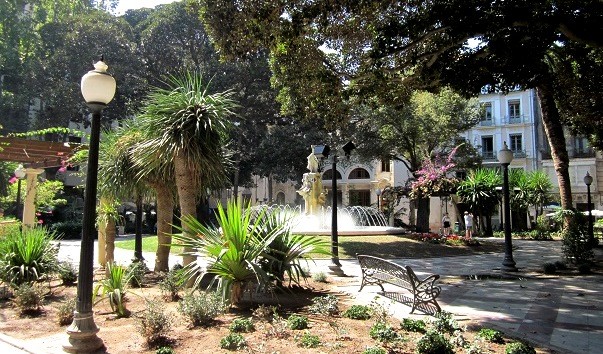
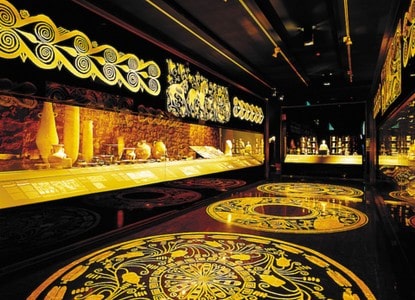
Alicante Archaeological Museum (MARQ)
One of the best museums in Spain, telling the history of the region from prehistoric times to the present day. Admission to the museum costs about $4-5 USD for adults and about $3 USD for children and seniors. The museum offers extensive displays and interactive exhibitions that will appeal to adults and children alike.
Santa Maria Basilica
An ancient church built in the Gothic style on the site of an old Muslim mosque. Entrance to the basilica is free, but visitors can make a voluntary donation to support the church.
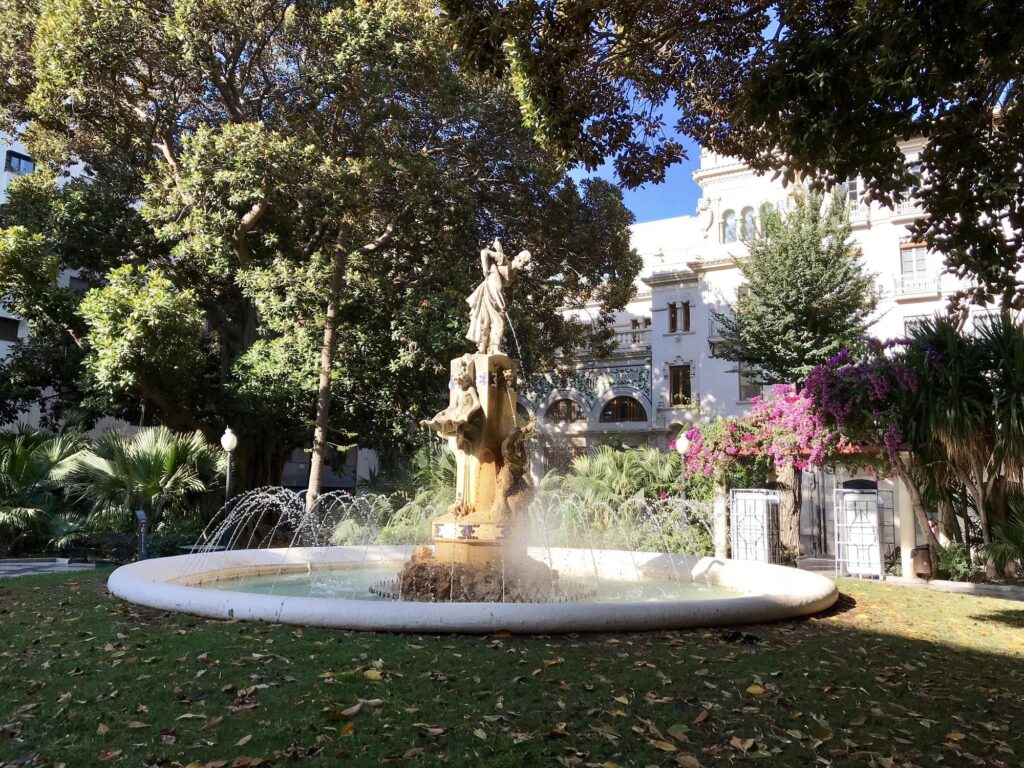
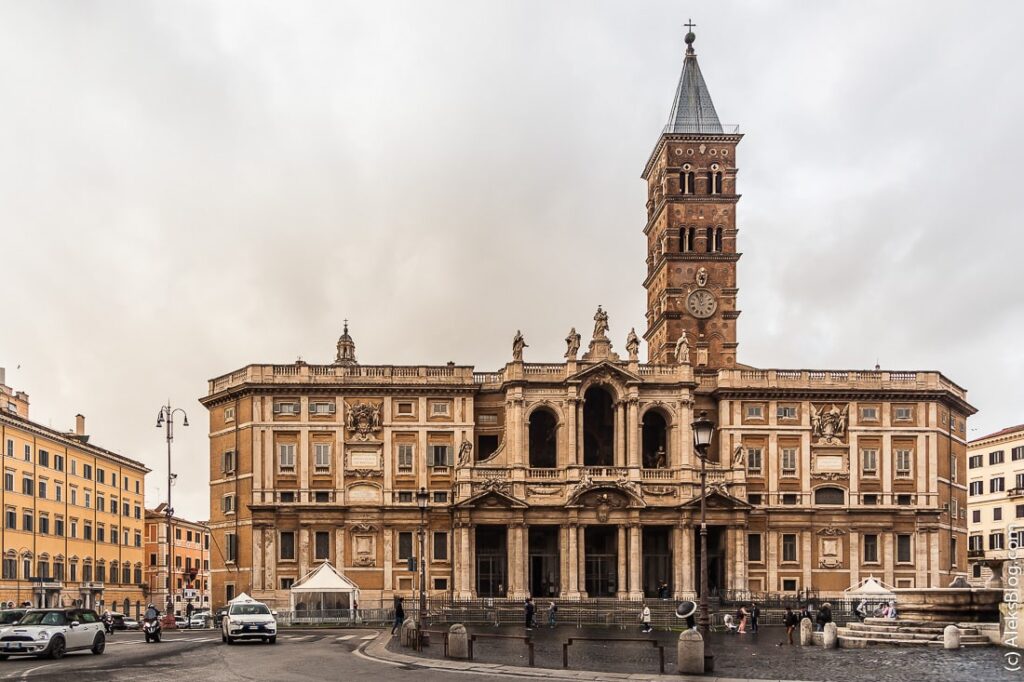
Gabriel Miro Square
This charming square is surrounded by old buildings and decorated with fountains and greenery. Entrance is free and it's a great place to relax and observe the life of the city.
Alicante Museum of Contemporary Art (MACA)
Located in a historic building in the city center, the museum offers a collection of twentieth-century art, including works by famous Spanish artists. Admission to the museum is free, making it accessible to all.
Alicante offers a wide range of attractions to suit a variety of interests and budgets. Whatever your preferences, you will always find something interesting to do in this amazing city.
Real estate in Alicante, Spain
Alicante is one of the most attractive cities in Spain for real estate investors. Developed infrastructure, wonderful climate and picturesque views make it an ideal place to buy a home. В Various real estate options can be found in AlicanteFrom cozy apartments in the city center to luxury villas on the coast.
Approximate prices depending on the type of property:
- Small apartments (1-2 bedrooms): between $136,300 and $200,000.
- Mid-sized apartments (2-3 bedrooms): between $200,000 and $350,000.
- Spacious apartment (3+ bedrooms): $350,000 to $400,000 and up.
- Villas (entry level): from $500,000.
- Villas (medium level): Between $700,000 and $1,000,000.
- Luxury villas: $1,000,000 and up.
Prospects for investors:
- High Yield: Investing in Alicante real estate can yield high returns due to the growing rental demand and increasing property values. Annual rental yields can range from 5% to 7%, depending on the type and location of the property.
- Popularity among tourists: Alicante attracts many tourists all year round, which makes renting accommodation here a very lucrative business. The high tourist flow ensures a steady demand for short-term rentals, especially during the summer months.
- Favorable conditions for investors: Spanish law offers attractive conditions for foreign investors, including the ability to obtaining a residence permit when buying real estate for an amount of 500,000 euros or more.
Recommendations:
- Explore the market: Before buying, it is advisable to conduct a detailed research of Alicante real estate market to understand the current trends and outlook.
- Consultation with professionals: Contact local realtors and lawyers to get professional advice and avoid potential legal complications.
- Consider different neighborhoods: Each neighborhood in Alicante has its own characteristics and advantages. Choose the neighborhood that best suits your needs and expectations.
Alicante offers a wide range of properties to suit all tastes and budgets, making it an attractive destination for investors and those looking for a second home on the Mediterranean coast.
Alicante Infrastructure
Alicante is a city with a developed infrastructure, offering all the necessary amenities for a comfortable life. Here you can find good educational institutions, modern medical centers, sports facilities, shopping centers and restaurants. Below are some of the key infrastructure facilities in the city.
Educational institutions
Colegio Inmaculada Jesuitas Alicante
- Address: Av. de Denia, 103, 03015 Alicante, Spain
- Description: Prestigious private school offering education in the Spanish national program from primary to secondary education.
Colegio Internacional Alicante
- Address: Calle Pintor Lorenzo Casanova, 33, 03003 Alicante, Spain
- Description: An international school with instruction in English, following the British curriculum.
University of Alicante (Universidad de Alicante)
- Address: Carretera de San Vicente del Raspeig, s/n, 03690 San Vicente del Raspeig, Alicante, Spain
- Description: One of the largest universities in the region, offering a wide range of bachelor's, master's and doctoral programs.
Kindergarten — Escuela Infantil Nido
- Address: Calle Poeta Quintana, 18, 03004 Alicante, Spain
- Description: Private kindergarten with excellent conditions for children from 0 to 3 years.
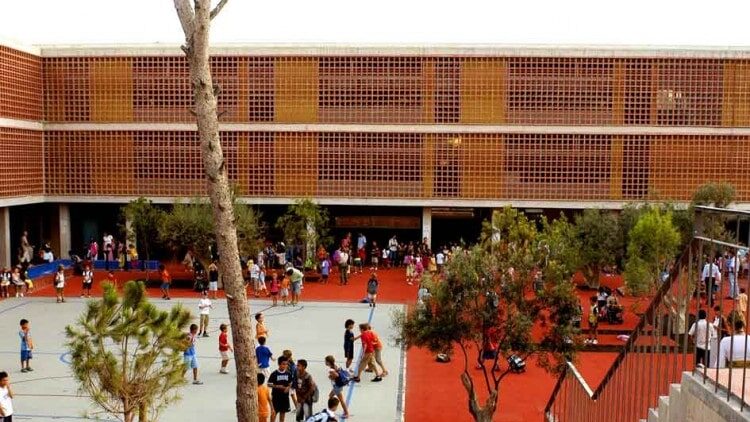
Medical institutions
Hospital General Universitario de Alicante
- Address: Calle Pintor Baeza, 12, 03010 Alicante, Spain
- Description: A large public hospital providing a wide range of medical services.
Hospital Vithas Perpetuo Internacional
- Address: Av. de Denia, 103, 03015 Alicante, Spain
- Description: A private hospital with a high level of medical care and specialized clinics.
Centro de Salud Alicante Ciudad Jardín
- Address: Calle General Espartero, 2, 03012 Alicante, Spain
- Description: A public polyclinic offering primary care and specialized services.
Clínica Dental Dr. Senent
- Address: Calle del Teatro, 1, 03001 Alicante, Spain
- Description: A modern dental clinic offering a wide range of dental services.
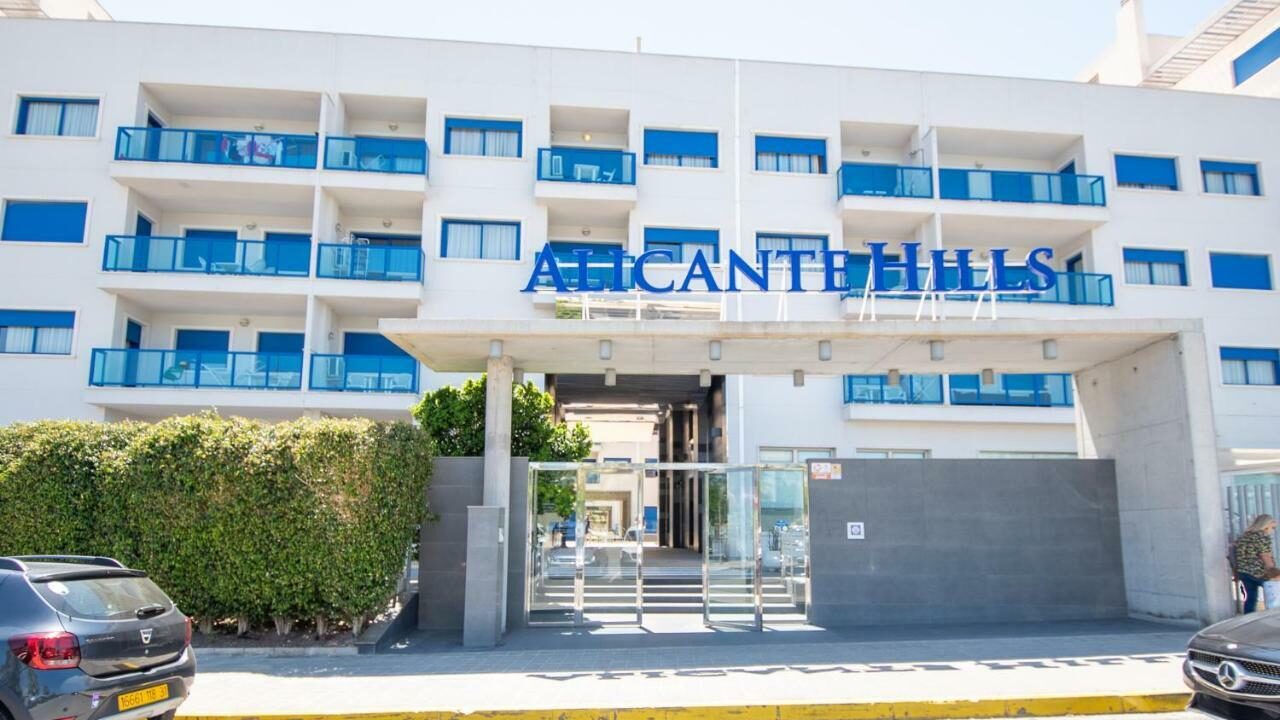
Sports centers
Gimnasio Arena Alicante
- Address: Calle del Deporte, 15, 03005 Alicante, Spain
- Description: Large fitness center with a gym, swimming pool and various sports sections.
Fit Gym Alicante
- Address: Calle Deportista Joaquín Blume, 3, 03008 Alicante, Spain
- Description: Popular fitness center with state-of-the-art equipment and a wide variety of group classes.
Club Atlético Montemar
- Address: Av. Locutor Vicente Hipólito, 03750 Alicante, Spain
- Description: Sports club offering tennis courts, padel tennis courts and soccer fields.
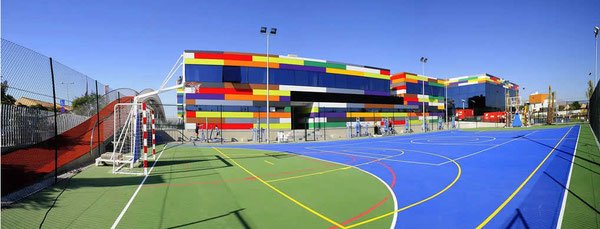
Shopping centers and restaurants
Shopping centers:
Centro Comercial Plaza Mar 2
- Address: Av. de Dénia, s/n, 03016 Alicante, Spain
- Description: One of the largest shopping centers in the city, offering a wide variety of stores, restaurants and entertainment venues.
El Corte Inglés
- Address: Av. Federico Soto, 1, 03003 Alicante, Spain
- Description: A well-known Spanish department store offering clothing, electronics, groceries and more.
Restaurants:
Nou Manolin
- Address: Calle Villegas, 3, 03001 Alicante, Spain
- Description: Popular restaurant known for its traditional Spanish cuisine and excellent tapas.
La Taberna del Gourmet
- Address: Calle San Fernando, 10, 03002 Alicante, Spain
- Description: A gourmet restaurant serving exquisite dishes made from fresh local produce.
Transport
Alicante has a well-developed transportation system including buses, streetcars and trains. The city also has an international airport, Alicante-Elche, which provides connections with other countries.
Approximate prices for transportation:
- Bus: A single ticket costs about $1.50 USD.
- Streetcar: A single ticket costs about $1.70 USD.
- Cab: The cost of a ride around the city ranges from $10 to $20 depending on the distance.
- Rental Car: The average cost of renting a car ranges from $30 to $60 per day.
Alicante's infrastructure offers all the necessary conditions for a comfortable life, making it an attractive city for locals and expats.
Life in Alicante
Alicante is a city with a rich cultural life, offering many events and celebrations to suit all tastes. Residents and visitors can enjoy a variety of cultural events, festivals and exhibitions that take place here all year round.
Major cultural events:
- San Juan Festival: One of the most famous festivals in Alicante, celebrated at the end of June. The festival is accompanied by fireworks, bonfires and carnivals. It is a time when residents and tourists gather on the beaches to celebrate the beginning of summer with bonfires and night swimming. The streets are filled with music, dancing and fun, creating an unforgettable atmosphere.
- International Festival of Medieval Culture: Held every year in May, it includes reenactments of historical events, fairs and theater performances. This festival takes participants back to the medieval era, with jousting tournaments, craft workshops and traditional music. This is a great opportunity for the whole family to immerse themselves in history and enjoy unique entertainment.
- Museums and galleries: Alicante Archaeological Museum (MARQ), Alicante Museum of Contemporary Art (MACA) and other cultural institutions offer a variety of displays and exhibitions. MARQ offers a journey through the history of the region from prehistoric times to the present day, while MACA showcases works by contemporary artists, including works by Juan Gris and Eisen Chaturian.
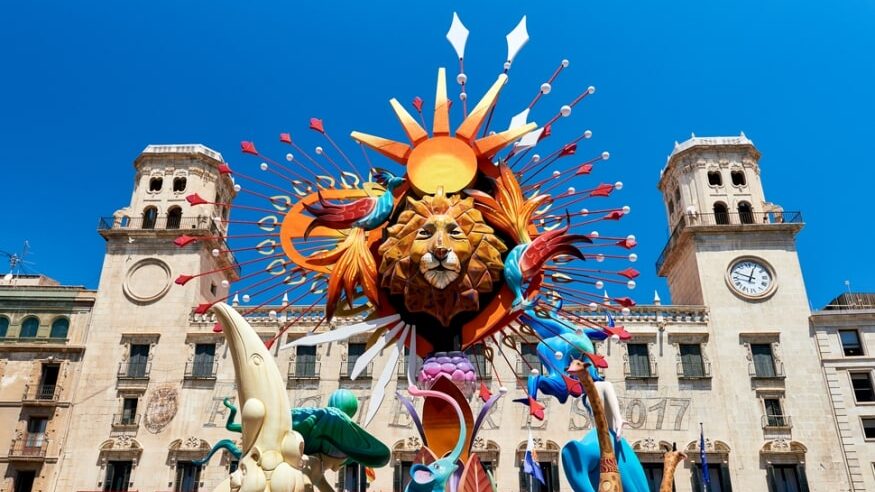
Additional activities and festivities:
- Fiestas Moros y Cristianos (Moros y Cristianos): A festival celebrating the historic battles between the Moors and Christians. The festival includes parades, costume shows and fireworks in different areas of Alicante throughout the year.
- Carnival in Alicante: This celebration takes place in February or March and features colorful parades, dancing and parties that fill the streets of the city. Carnival in Alicante is known for its colorful costumes and fun atmosphere.
- Markets and fairs: Alicante regularly hosts markets and fairs where you can buy fresh local produce, handicrafts and souvenirs. One popular one is the Alicante Central Market (Mercado Central), which is not only a place to shop but also an important cultural center.
Educational and recreational activities:
- Culinary Master Classes: Alicante is known for its cuisine, and there are often cooking classes where you can learn how to prepare traditional dishes such as paella and tapas.
- Musical concerts and plays: The city has many concert halls and theaters that host local and international artists.
Life in Alicante is packed with cultural events and entertainment that make the city a lively and dynamic place to live. Regardless of the time of year, there is always something of interest for everyone, whether it's visiting a museum, taking part in a festival or simply strolling the historic streets of the city.
Approximate cost of living in Alicante
Alicante is an attractive city to live in, offering a high quality of life at relatively affordable prices. Here's a breakdown of the main costs you may encounter when living in this sunny Spanish city.
Housing
- Renting an apartment:
- Studio apartment in the city center: between $600 and $900 a month.
- One bedroom apartment off-center: between $400 and $600 a month.
- Two bedroom apartment in the city center: $1,000 to $1,500 per month.
- Two-bedroom apartment off-center: between $700 and $1,000 a month.
- Purchase of real estate:
- Apartment in the center of the city: From 2,500 to 3,500 USD per square meter.
- The apartment is off-center: 1,500 to 2,500 USD per square meter.
Public utilities
- Basic utilities (electricity, heating, cooling, water, garbage disposal) for an 85 m² apartment: between $100 and $150 a month.
- Internet (60 Mbps or higher, unlimited): about $40-$50 a month.
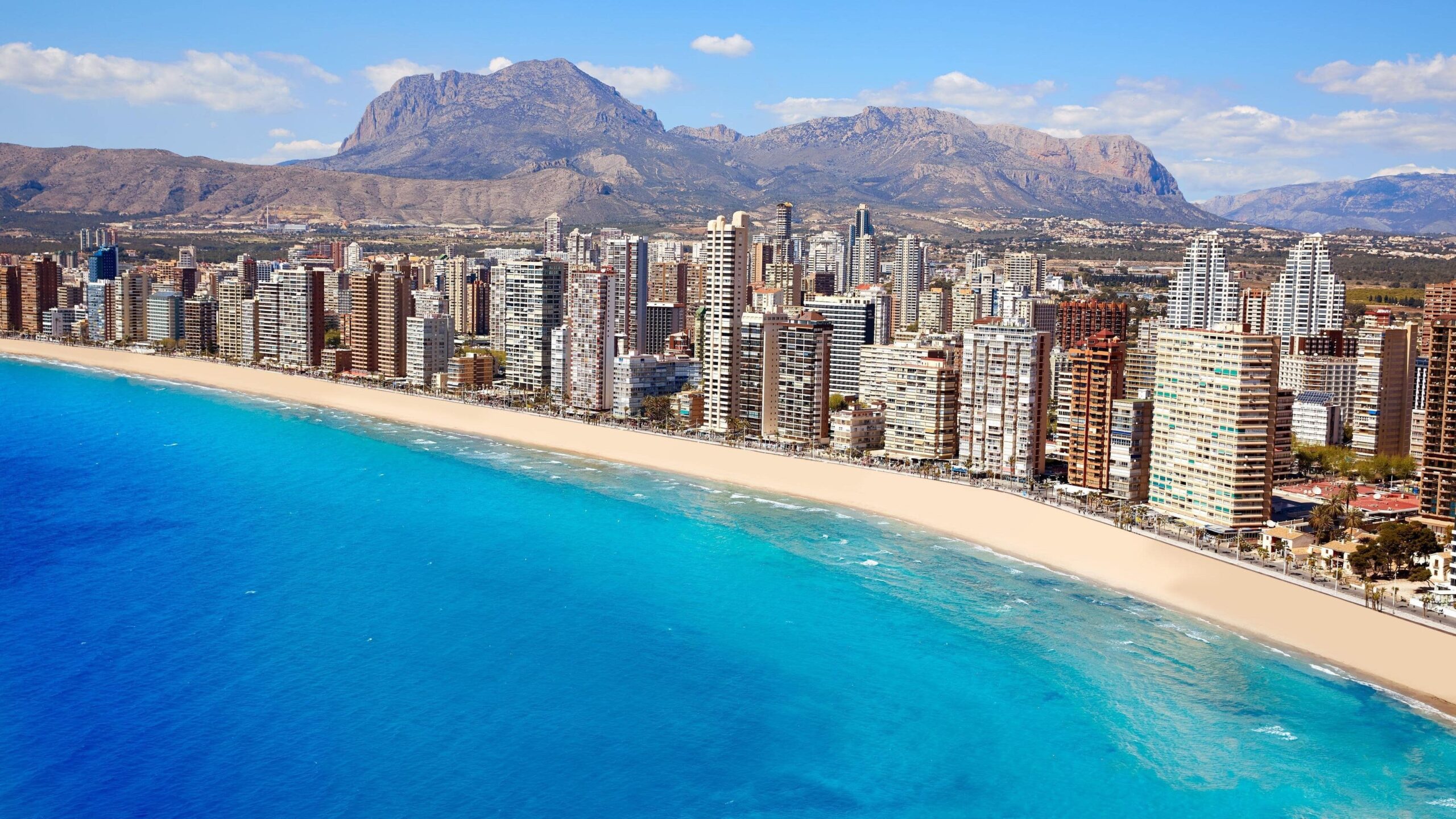
Transport
- Public transportation pass (one month): about $45-$50.
- A ticket for one ride (bus/tram): about $1.50-$2.00.
- Cab (starting price): About $4 to $5 USD, then about $1 to $1.5 USD per kilometer.
- Car Rental (per day): From $30 to $60 depending on model and season.
Food
Products:
- Milk (1 liter): about $1.00.
- Bread (loaf): about $1.20.
- Eggs (12 pieces): about $2.50.
- Chicken fillet (1 kg): about $7 to $8 dollars.
- Potatoes (1 kg): about $1.00.
- Apples (1 kg): about $2.00.
Restaurants:
- Lunch at an inexpensive restaurant: about $12-$15.
- Three meals a day for two in a medium priced restaurant: about $50-$60.
- Cappuccino: about $2 to $3 dollars.
- A bottle of water (0.33 liter): about $1-$1.50.
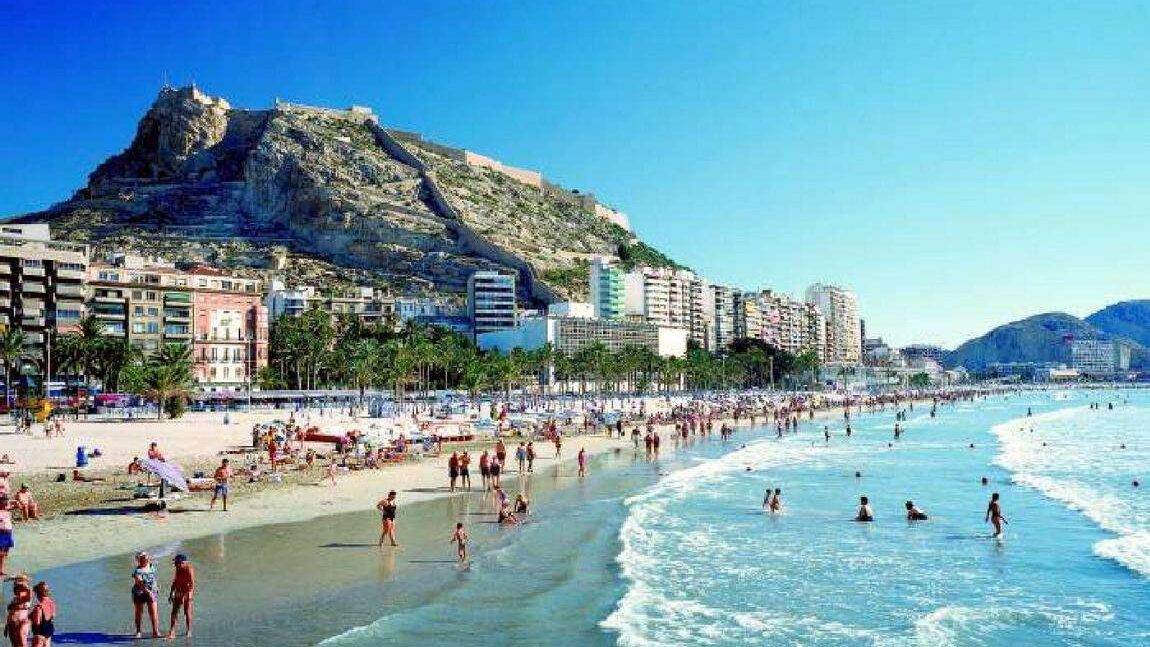
Entertainment and leisure
- Fitness club subscription (one month): 30 to 50 dollars.
- A movie theater ticket: about $8 to $10.
- Museum visit: between $5 and $10.
Education
- International School (annual fee): Between $10,000 and $20,000.
- Kindergarten (month): Between $300 and $600 depending on the type of institution.
Living in Alicante offers a great combination of high quality of life and affordable prices. The cost of housing, groceries and services is significantly lower than most major European cities, making Alicante an attractive place to live for locals and expats alike. Whether you are looking for a quiet place to live or an active city life, Alicante has something to offer to suit all tastes and budgets.
Reviews of Alicante
Reviews by tourists and residents of Alicante often emphasize the city's unique combination of cultural and natural attractions, as well as its friendly atmosphere.
1. Maria, a tourist from Italy:
"My trip to Alicante was simply unforgettable! The city is so picturesque, it's impossible not to fall in love with its beautiful scenery. The Santa Barbara Castle is one of my favorite places, with stunning views of the entire city and coastline. I was also impressed by the hospitality of the locals, who were always willing to help and suggest interesting places to visit. And of course, the Spanish cuisine is something special. I recommend everyone to try the paella and the local wine."
2. John, an expat from the UK:
"Moving to Alicante has been the best decision of my life. I have been living here for a few years now and enjoy this amazing atmosphere every day. The locals are incredibly friendly and welcoming. I have fallen in love with the local cuisine, especially the seafood dishes, and frequent the restaurants with family and friends. The weather here is simply gorgeous all year round, allowing you to enjoy the beaches and outdoor activities. Alicante is the perfect place to live."
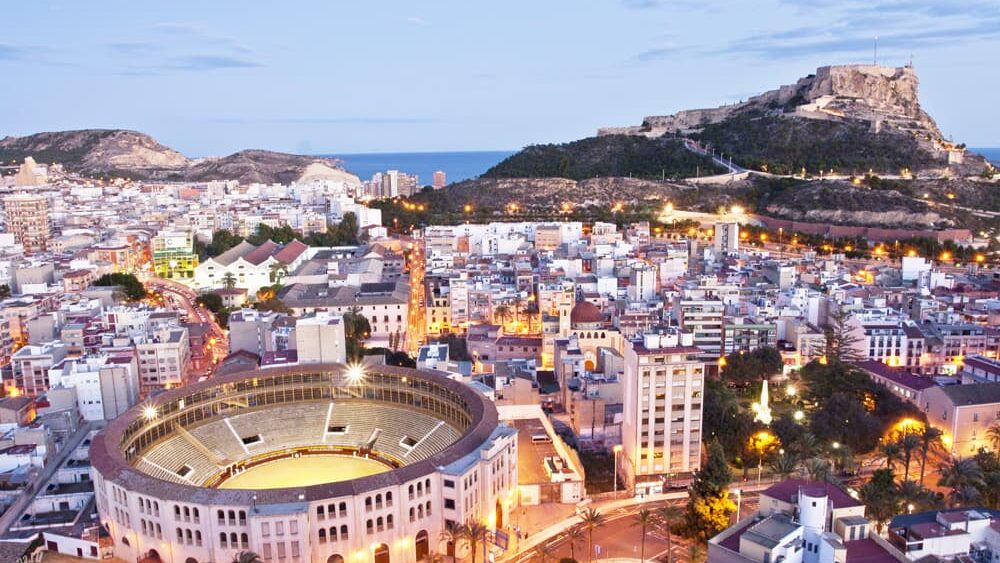
3. Anna, a tourist from Germany:
"I spent a week in Alicante and it was an unforgettable time! The city offers a huge number of interesting places to visit, from historical sites to modern museums and galleries. The Esplanada de España promenade is a great place for evening strolls and the views from Mount Benacantil are breathtaking. The locals are the friendliest people I've met, they are always willing to help and offer advice. I will definitely come back here again!"
These reviews highlight the aspects that make Alicante a special place to live and visit: the hospitality of the locals, the fine food and wine, and the stunning natural and cultural attractions.
Overall, Alicante is a city that attracts with its charm, culture and opportunities. Whether you plan to visit as a tourist or are considering relocating, Alicante can offer you many positive experiences and opportunities for a comfortable life. Welcome to Alicante - the city of sun, sea and endless fun!
Alicante has a Mediterranean climate with hot, dry summers and mild, wet winters. The average annual temperature is around 18°C. Temperatures can reach 30°C or higher in summer and rarely fall below 10°C in winter.
Renting a one-bedroom apartment in the city center costs from $600 to $900 per month, outside the center - from $400 to $600. A two-bedroom apartment in the center costs from $1,000 to $1,500, and outside the center - from $700 to $1,000 per month.
Alicante-Elche International Airport is located 9 km from the city center. You can get there by cab (20-25 euros), bus (about 4 euros) or rent a car (20 to 50 euros per day).
We recommend visiting Santa Barbara Castle, Esplanada de España, Parque Canalejas, Alicante Archaeological Museum (MARQ) and Alicante Museum of Modern Art (MACA).
The approximate cost of living in Alicante includes rent ($400 to $1,500 per month), utilities ($100 to $150 per month), internet ($40 to $50 per month), transportation ($45 to $50 for a monthly pass), and food (lunch at a restaurant is about $12 to $15).
Alicante has prestigious schools such as Colegio Inmaculada Jesuitas Alicante and Colegio Internacional Alicante, as well as the University of Alicante. Educational institutions offer quality education for both local and international students.
In Alicante you can enjoy the beaches, visit museums and galleries, participate in festivals, practice water sports, and enjoy gastronomic tours and walks in the old town.
What is the climate like in Alicante?
Alicante has a Mediterranean climate with hot, dry summers and mild, wet winters. The average annual temperature is around 18°C. Temperatures can reach 30°C or higher in summer and rarely fall below 10°C in winter.
How much does it cost to rent a home in Alicante?
Renting a one-bedroom apartment in the city center costs from $600 to $900 per month, outside the center - from $400 to $600. A two-bedroom apartment in the center costs from $1,000 to $1,500, and outside the center - from $700 to $1,000 per month.
How to get to Alicante?
Alicante-Elche International Airport is located 9 km from the city center. You can get there by cab (20-25 euros), bus (about 4 euros) or rent a car (20 to 50 euros per day).
What sights are worth visiting in Alicante?
We recommend visiting Santa Barbara Castle, Esplanada de España, Parque Canalejas, Alicante Archaeological Museum (MARQ) and Alicante Museum of Modern Art (MACA).
What is the cost of living in Alicante?
The approximate cost of living in Alicante includes rent ($400 to $1,500 per month), utilities ($100 to $150 per month), internet ($40 to $50 per month), transportation ($45 to $50 for a monthly pass), and food (lunch at a restaurant is about $12 to $15).
What is the level of education in Alicante?
Alicante has prestigious schools such as Colegio Inmaculada Jesuitas Alicante and Colegio Internacional Alicante, as well as the University of Alicante. Educational institutions offer quality education for both local and international students.
What to do in Alicante in your free time?
In Alicante you can enjoy the beaches, visit museums and galleries, participate in festivals, practice water sports, and enjoy gastronomic tours and walks in the old town.
